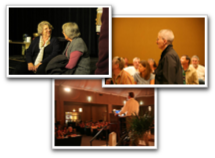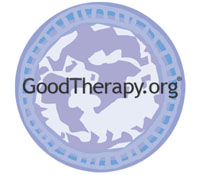Learn new skills and compassion techniques to work with your clients… and improve your life, too.
Earn up to 19.0 CE’s; Thursday-7.0 hrs., Friday-6.0 hrs. & Saturday-6.0 hrs.

Thousands of psychologists, social workers, nurses, and mental health professionals trust us to provide the best continuing education training and conference experiences.
Here are a few of the compassion topics that will be covered in San Diego
Located on beautiful Mission Bay with easy access to walking paths & the marina.

San Diego Conference & Hotel Site: Hyatt Regency Mission Bay 1441 Quivira Road San Diego, CA 92109
RESERVE YOUR ROOM EARLY… $159 +tax (single or double).
Ask for the FACES Compassion Conference Rate
Make your reservation online: https://resweb.passkey.com/go/FACESCompassion
The Hyatt is located on the marina at Mission Bay, six miles from the airport, one mile to Sea World and six miles to Downtown San Diego.
Join us for up to three days of mindfulness & compassion training, connect with friends, colleagues, and experts in the field.
Conference Agenda

This presentation explores the relationship of compassion to the evolution of attachment behavior and affiliative emotion. These will include attention training, soothing, rhythm breathing, safe placed imagery, compassionate self-cultivation, compassionate self-focusing and compassion image focusing. Participants will be engaged in personal practice and trying out these interventions.
Professor of Clinical Psychology, & Director of the Mental Health Research Unit, University of Derby, Derby, United Kingdom. Author, The Compassionate Mind, New Harbinger, 2009

In the psychological flexibility model underlying Acceptance and Commitment Therapy (ACT) a perspective taking sense of self is argued to be central to both self-compassion and compassion toward others. Dr. Hayes will explain this position, show evidence for it, and extend it to ACT and to the therapeutic relationship.
Professor of Psychology, University of Reno, Nevada Developer, Acceptance and Commitment Therapy (ACT) and Relationship Frame Theory (RFP)

This presentation will provide an overview and key exercises from the Mindful Self-Compassion program, and empirically supported 8-week intervention program that teaches self-compassion skills. Some key exercises from the program will be taught to help develop self-compassion in daily life, and psychological resistance.
Pioneer in the field of compassion research; Associate Professor, Ed. Psych. Dept., University of Texas at Austin

In this workshop, Dr. Hayes will give examples of each of the six psychological flexibility processes that underlie Acceptance and Commitment Therapy, an evidence-based psychotherapy method with broad applicability to human suffering, and show how these methods empower compassion work. He will also discuss how compassion and self-compassion empowers psychological flexibility processes, which are among the most powerful trans-diagnostic processes known in psychotherapy.

This workshop will explore the reasons why we try to motivate ourselves with self-criticism, and will help us learn to have compassion for our inner critic. It will also teach practices to help get in touch with our compassionate inner voice so that we can more effectively (and less painfully!) motivate needed changes in our lives.

This workshop will introduce the CFT model of compassion and some of the techniques that are used to promote compassion. The evolution of attachment and affiliative emotion played a significant role in the regulation of threat processing. We will explore how affiliative emotion becomes disrupted with programs such as shame and self-criticism and how compassion can be central to the healing of these difficulties. In addition, we will outline the compassion focused therapy model of compassion that is based on two psychologies: the capacity to turn toward and engage with, and make sense of suffering in self and others, and second-the ability to understand how to soften and alleviate suffering in self and others.

Compassion is today becoming a major focus of scientific and clinical research, with scientists even studying the effects of deliberate compassion training. How might this work change our very conception of human nature? What can the current scientific and therapeutic community learn from the Buddhist contemplative practices aimed at cultivating compassion?
Chairman, Mind and Life Institute

This presentation explores a model of compassion that is nonlinear, context sensitive, and practical. It also touches on the challenges that clinicians, in all disciplines, face in giving care to those who are suffering. It outlines categories of compassion that give more dimensionality to what we usually consider compassion to be.
Abbott & Head Teacher, Upaya Zen Center, Santa Fe. NM; Author, Being with Dying

A unique intervention will be presented that clinicians can use in compassion-based interactions with patients. The G.R.A.C.E. intervention will be taught as a process, as well as other approaches to fostering compassion.

This session will explore the most common beliefs, motivations, human instincts, and concerns that can create resistance to compassion for oneself and for others.
Resident teacher, lecturer, psychologist, Stanford Center for Compassion and Altruism Research and Education; Author, The Willpower Instinct
In this workshop we will explore how Stanford’s Compassion Cultivation Training (CCT) can be enlisted as a tool that promotes caregiver resilience. Experiential tools from the CCT program will be shared with attendees.
Director of Education, Center for Compassion and Altruism Research and Education, Stanford University, School of Medicine

In this workshop, we will explore the most common traps that keep people from their goals, and how we can avoid them. Discover the biggest myths about willpower, and the latest insights about self-control and motivation from the fields of psychology and neuroscience. For example, we’ll consider how willpower can be contagious, why self-compassion (not self-criticism) is the key to successful change, and how to cultivate “wantpower”. You will learn practical strategies on how to boost focus, resilience, motivation and help people (including yourself) make important changes, whether it’s creating health, conquering old habits, overcoming anxiety, strengthening relationships or pursuing a passion.
In this workshop we will explore how Compassion-based interventions can be adapted to meet the needs of trauma survivors in clinical settings. Experiential tools from the Stanford CCT program will be shared with attendees.

Why compassion is actually the antidote to caregiver burnout.
Researches pro-social emotions like compassion, gratitude, awe and love of humanity. Science Director, Greater Good Science Center, University of California, Berkeley.

Although our culture is highly invested in avoiding “negative” experience, Buddhist and Western psychologies agree that avoiding emotional pain leads to long-term suffering, whereas directly engaging pain ultimately reduces it. Critical to this process is the therapist’s compassionate capacity to allow and tolerate distress in the client, and ultimately in him/herself.
Associate Professor of Psychiatry and Psychology; Director, Trauma Program, USC; Author, Author, Principles of Trauma Therapy, 2nd edition.

Self-Compassion is the “beating heart of mindfulness” in psychotherapy. It can help reduce anxiety and depression, soften shame and self-criticism, improve relationships, enhance emotional wellbeing, and maintain a healthy lifestyle. Participants will learn how to introduce self-compassion practices and principles into their patient’s lives.
Clinical Instructor in Psychology at Harvard Medical School; Author, The Mindful Path to Self-Compassion.

Being a psychotherapist means regular exposure to people undergoing painful emotions and describing upsetting things. Witnessing pain of this magnitude can generate unwanted feelings in the therapist and threaten basic, protective assumptions about the world. The client’s experiences may bring home the inevitability of future suffering in the therapist’s own life. Luckily, phenomena especially helpful in working with clients—mindfulness and compassion—can lessen vicarious traumatization and countertransference, and increase enjoyment and growth in the work.
Helping our clients to move skillfully to the 5 C’s of coping, calm, compassion, clarity, connections to resources, and competence.
National trainer on the integration of relational psychology, mindfulness and neuroscience to promote resilience. Author, forthcoming book – Bouncing Back: Rewire Your Brain for Maximum Resilience and Well-Being.

We will explore how to practice self-compassion during the clinical hour to enhance therapeutic presence, reduce compassion fatigue, and cultivate “exquisite empathy”. Participants will learn how to balance compassion with wisdom, and growth in wisdom, throughout their professional lives.
Cultivating positive emotions—gratitude, joy, compassion, awe—reverse the impact of negativity on mood, health and coping behaviors.

We will survey the main biological systems involved in compassion, and chart out how boosting compassion affects these systems, to the benefit of health, well-being and social relationships.




